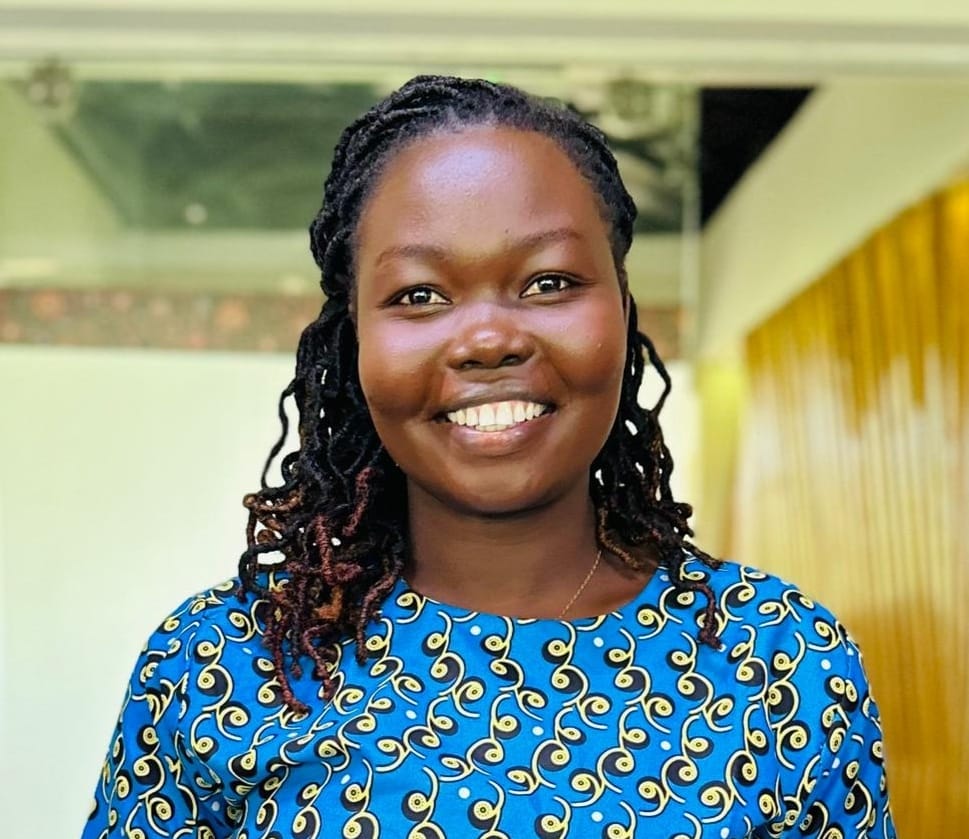The fallouts of war are often wide-ranging and catastrophic. Homes become deserted as families are thrown into disarray, burdened with little more than shattered pieces of memory and a deep sense of uncertainty.
These were the series of harrowing events that roiled Sudan shortly after Conzana Mangati Cornelius was born. In the wake of Sudan’s endless racial wars, in December 1997, her parents were forced to flee their hometown, trudging along unmarked routes with Conzana, then six months old. Hiding in the back of rumbling lorries, the family soon crossed into Kenya.
Conzana and her family settled into the Kakuma Refugee Camp, home to over 300,000 displaced people. Each day, Conzana woke up before dawn to attend classes that were crammed with as many as 133 children.
Yet she was one of very few girls in Kakuma that went to school. Female students made up only 26-27% of Kakuma’s secondary schools.
Her experiences in this vast settlement would eventually inspire her to set up Saidia, an initiative providing inclusive education and quality livelihoods for refugees.
In 2017, Conzana received a scholarship for a Diploma in Business Administration at Masinde Muliro University of Science and Technology.
Later, in 2022, she advanced to the African Leadership University in Kigali for postgraduate training in Business Strategies and Investment. It was here that she began to connect her studies with lived realities.
During her first year at the African Leadership University in Kigali, she encountered a strange scene that inspired her mission.
At the food distribution centre, where students lined up to receive their rations, Conzana and a friend saw a woman retrieve money from her private parts, after surveying the environment, to pay for soda.
“It was so scary to me. It was a shock to me because I’ve never seen that happening before,” Conzana recalls.
As Conzana would later discover, the woman was a homemaker with seven children who was prohibited from having any money. “If she’s seen with even a cent, she’s beaten up by her husband.”
This moment opened her eyes to the hidden layers of torture, silence, and abuse that confronted women in the camp—as well as across the world.
If even one soda could represent so much pain and powerlessness, Conzana thought, maybe tools could be given so women might reclaim some autonomy.
Not long afterwards, Conzana launched a sustainability project, backed by a Hong Kong-based investor.
At first, she acquired three motorcycles. She would teach women in the camp, including the woman she encountered, to ride motorcycles as a source of income. The women would be bound by a contract.
The number of motorbikes soon spiked to ten as more women were recruited to carry customers, transport goods and even make small businesses around mobility. This newfound independence bolstered the women’s self-esteem.
Saidia Community Initiative
That motorbike project blossomed into the Saidia Community Initiative. A Swahili word meaning “help,” Saidia is drawn from Conzana’s own experiences. “There’s a lot of things that I didn’t receive as a girl growing up in the town,” she says. “We faced a lot of challenges in terms of security, well-being, accessing sanitary towels, or getting soft kits.”
Saidia’s mission entails expanding access to resources, education, health, economic sustainability, leadership, and dignity for women and girls in Kakuma.
In July 2023, it established its first office and classroom in Kakuma. The reception was enthusiastic. They asked, “When are we starting?” That signalled a need.
Reclaiming futures in Kakuma
In Kakuma, teenage motherhood often forced girls out of school and into early marriage. Many lacked reliable information or access to menstrual hygiene.
In response, Saidia hosted SRHR programmes that strengthened awareness among hundreds of women. Along with doling out sanitary towels,
It also re-enrolled many teenage mothers in school, offering necessary childcare and business support to help them stand on their feet. At least 29 of them have already returned to school.
The SRHR programme reached over 3,500 individuals, including adolescents, teenage mothers, and women outside Kakuma’s schooling system.
To curb the trend of gender-based violence in Kakuma, Saidia provided group therapy and skills training, grooming participants in problem-solving, effective communication, and strategies for navigating difficult situations.
Survivors are also taught to use digital platforms and mobile apps to report cases and receive prompt support. Around 40 young women within Kakuma have been actively involved in GBV programmes.
In a bid to boost accountability among men, the initiative hosts periodic training on gender, respect, non-violent communication, power dynamics, and informed action. 30 men have since participated in this training.
Building with the community
At the heart of Saidia’s programmes is community ownership. Conzana explains that forums and awareness campaigns are held before any project is initiated. This transparency helps to ensure that the programmes are tailored to the realities of the Kakuma community.
Refugees in Kakuma are divided into aid categories that determine whether they can access food.
Those in categories three and four (non-vulnerable refugees usually classified by age) are typically excluded from external support—fuelling insecurity and rising levels of despair, particularly among the women.
“Many people are committing suicide, especially women, people killing themselves, rape cases, stealing, people are dropping out from school,” Conzana laments.
Saidia’s sustainability dialogues bring together various stakeholders, including international organisations, to propose solutions to these challenges. “We act as a catalyst,” she explains. “We do a follow-up on the questions raised and make sure the feedback from these organisations reaches the community.”
Saidia is currently run from a single office and a multipurpose classroom. Its plans to build a dedicated children’s arts and skills centre has been paused owing to funding constraints.
Community members often travel long distances to attend sessions and expect basic support like transport or refreshments, which it struggles to provide. These gaps limit the scale and consistency of activities.
Its volunteer-run model also presents hiccups. Only those attached to externally funded projects, such as the sexual and reproductive health and GBV programmes supported by Amahoro Coalition, receive stipends.
Even advocacy can be fraught. Conzana recalls one recent incident where she voiced her frustration at the exclusion of women-led refugee groups in a programme.
“But they went ahead and deleted my comment.” The deletion was later justified as “safeguarding reputation.” But for her it symbolised the constant silencing of refugee women’s voices.
“Freedom of expression is very challenging … Growing up in the camp isn’t that easy. You grow up mindfully, like minding what you’re doing, whom you’re talking to,” she added.
Restrictions on refugee movement, low wages when paid, and limited opportunities for visibility further marginalise the group.
She envisions expanding Saidia’s physical and programmatic footprint, including scaling up reusable pad production and securing more consistent funding so staff aren’t entirely volunteer-based.
Conzana may never return to Sudan, but through Saidia she is recreating what war once stole from her: a place where refugees can feel at home again.
The consequences of war in Sudan forced Conzana Mangati Cornelius's family to flee to Kenya when she was an infant. Growing up in the Kakuma Refugee Camp, where education for girls was scarce, inspired her to establish Saidia, an initiative to promote education and livelihoods for refugees. Conzana's educational journey included a diploma in Business Administration and further studies at the African Leadership University, where experiences prompted her to help women regain autonomy, leading her to launch a motorcycle project for women's economic independence.
Saidia has evolved into the Saidia Community Initiative, aiming to expand access to resources, education, and dignified livelihoods for women in Kakuma. The initiative tackles barriers like gender-based violence and lack of education for teenage mothers by providing sanitary products, re-enrolling teenage mothers in schools, and offering job skills training. Conzana also emphasizes community involvement and collaborates with international organizations to address challenges, although funding constraints limit Saidia's expansion and operation.
Despite hurdles, including restricted movement and limited visibility for refugees, Conzana continues to build Saidia as a place where refugees can regain a sense of home and opportunity, emphasizing the importance of empowering women and creating a supportive community.






